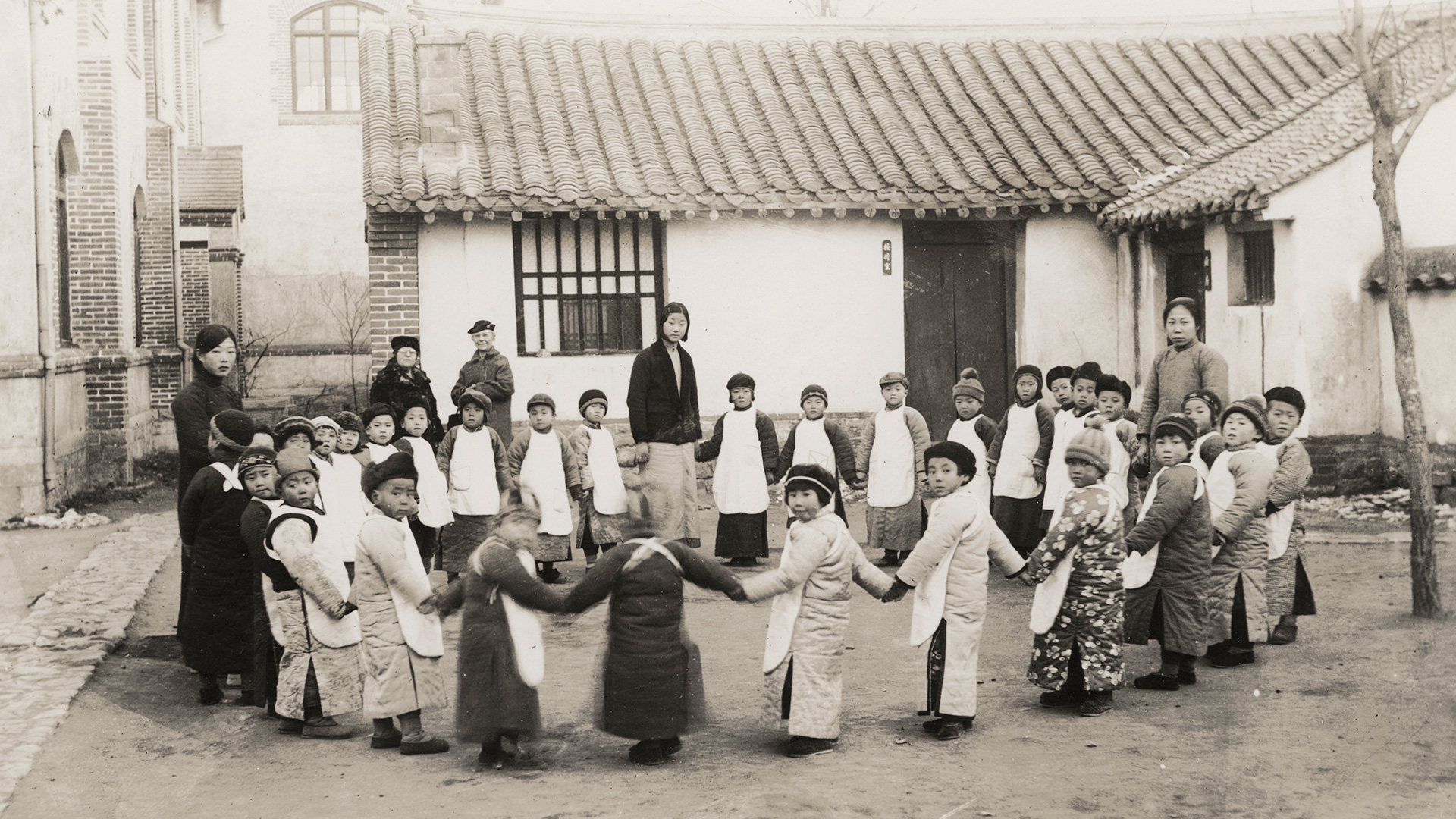
Editor’s Note: Lottie Moon gets a lot of press here at imb.org, and rightfully so. Her legacy lives on as the impetus for generations of missionary engagement among peoples and places around the world. She, however, is far from the only woman whose influence has cast a long shadow on the world of missions. This week, as we look toward Mother’s Day, we’d like to celebrate the lives and work of a few spiritual mothers that have deeply impacted many in the work of missions.
When I first packed my duffle bags full of toilet paper and Lipton instant soup, bound for Central Asia to learn Russian and talk about Jesus, I was barely out of college. Fresh on my mind were stories of spiritual awakenings and revivals that my friends and I had studied while we asked God to work similarly on our university campus. By the time I finished school, we hadn’t seen the Holy Spirit move as we had hoped or imagined he might. There weren’t great waves of students coming face to face with their sin and their need for Jesus. Worship of the one true God hadn’t become the dominant note sounding on our secular campus.
But our own hearts were changed. I was perhaps the most surprised of any of us when God called me to go overseas. Through early morning prayer times and solemn assemblies, he made us ready and willing to obey. And then he scattered us—to Central Asia, to Europe, to East Asia, to the Middle East.
Sometimes I look back on those days and wonder whether his calling was the answer to our prayers, whether that was his gift to us—just something different than we’d expected. But I also wonder: Might he have planted seeds for revival among us at that time that are still growing today? Might he still answer our prayers, in the places where he has planted us now, if we just hold on and keep asking?
This month as we celebrate Mother’s Day and the women who have impacted our lives, I have been rereading the story of the Shantung Revival as told by Marie Monsen, a Norwegian missionary to China during the early 1900s. Her story resonates with me because she seems an unlikely choice to be a missionary, much less a person through whom God stoked the fires of one of the greatest revivals in history.
A Heart Molded through Suffering
If Marie distinguished herself at all during her first years in China, it was as one of those people for whom everything seemed to go wrong. She was in-country barely a month when she fell down some stairs and hit her head so hard that she was unconscious several days. The trauma left her unable to study language for two years. For six years she suffered debilitating headaches.
“Marie went from city to city in China asking a simple question: ‘Have you been born again?’”
God miraculously healed her from the headaches, and then she contracted malaria. Chronic dysentery, malaria, pain, and frustration marked her first years of service. Not a stellar start to a missionary career.
But God chose to use this most unlikely woman. For nearly twenty years he patiently taught her, stacking lesson upon lesson. He showed her through an elderly Chinese woman how to struggle in prayer and believe God for answers. He caught her attention with stories of revival from around the world. He swept away her own sense of intellectual adequacy and physical strength, teaching her about the Spirit’s power.
And then he set her life on fire.
The Spark of Revival
Few people in the West know her name today, but through Marie Monsen many people chose to follow Jesus. During the Shantung Revival that began in 1927 and lasted ten years, God used her like a torch. The Spirit anointed her eyes to see the true spiritual state of the church and gave her courageous words to expose the spiritual darkness that was prevalent in China, even—perhaps especially—within the church.
Marie went from city to city in China asking a simple question: “Have you been born again?” She would ask seekers and pastors and missionaries—no one was off limits. The Spirit would work through her piercing question and melt cold hearts, revealing hidden sin and calling people to surrender everything to Jesus. Mary Crawford, a Southern Baptist missionary serving in China during the revival, said of Marie: “Miss. M. herself is one of the quietest speakers I ever heard, but anyone with any discernment at all could see and feel that she was depending upon the promises of God in a remarkable way.”
Ears to Hear the Spirit’s Voice
As I have read accounts of the spiritual awakening in China, four themes have emerged from the life of Marie Monsen that have challenged me deeply:
- She understood her littleness.
Through accidents and illness, God brought Marie to a place of utter dependence on him. He gave her insight to understand that nothing would change within the anemic Chinese church if the Spirit of God did not move. He had to do the work—human effort would not produce the fruit of revival. She understood she was only a tool, and as a foreign woman, an unlikely one at that. - Prayer must undergird everything.
Prayer is where the real work begins and ends. Wherever Marie went, she enlisted prayer support, whether from fellow missionaries or groups in her home country. Again, she understood that she was asking God to do something that she was powerless to accomplish herself. - The Spirit uses the Word.
Marie saw how God’s Word, planted in people’s hearts, would bear fruit in the moment the Spirit chose to move. She reminded herself, fellow missionaries and Chinese believers of this truth many times over. Our efforts to help others learn God’s Word is one of the greatest gifts we can give. - God in his sovereignty puts people in the right place at the right time.
Marie, after many years of prayer, suffering, and struggle, had the privilege of reaping a great harvest. Not all of us get the privilege of being reapers, but her story reminds me that every person has a role to play. We are not to be passive in our waiting. We pray, we plant seeds of the gospel, we water them. A harvest will come because good seed bears good fruit.
From a human perspective, Marie Monsen was unremarkable. However, in the spiritual realm, she persisted. When she couldn’t speak Chinese because of her head injury, she listened to the language spoken around her. When she couldn’t travel due to illness, she prayed. When others insisted that the Chinese people would never repent and experience revival, she believed God for something more.
“Those who go out weeping, carrying seed to sow, will return with songs of joy, carrying sheaves with them” (Ps. 126:6 NIV).
This was Marie’s story. May it be mine as well.


